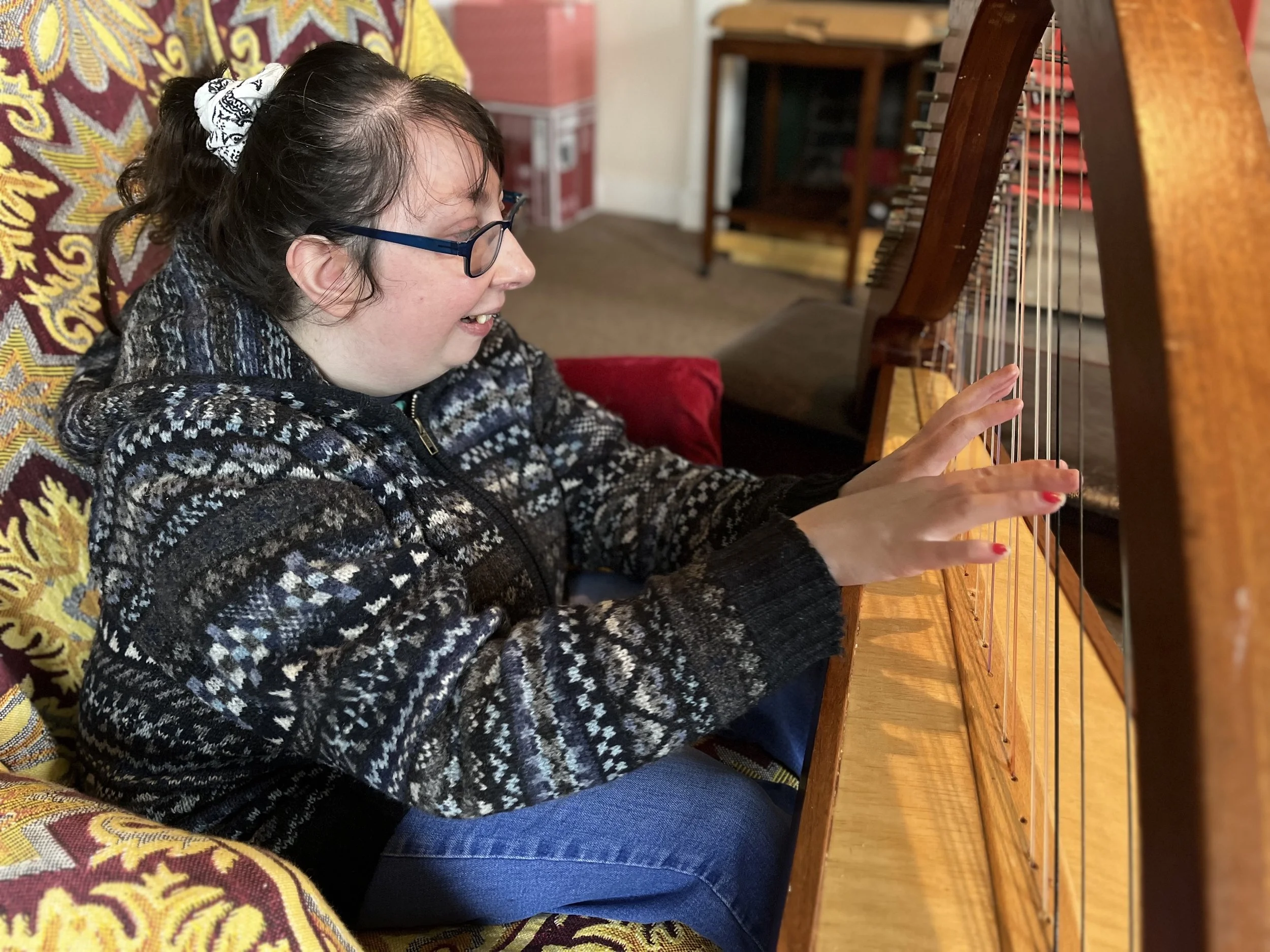Music moves us
Music is part of us all
Our heartbeat, breathing and movement have rhythm and pulse.
Laughing, crying and talking are all melodic expressions.
Our changing moods and experiences of life are closely mirrored in the ebb and flow of musical harmonies and textures.
Music is a powerful emotional medium. The ability to listen and respond to music is universal. This connection may remain unaffected by illness, injury or disability and is not dependent on any musical training or background.



The dance of attunement
What is Music Therapy?
Music Therapy is an interactive, mainly nonverbal intervention. Through the process of making music, clients can discover new ways of interacting and expressing themselves.
This is an immediate and personal form of communication, with no 'right' or 'wrong' notes. Therapist and client tune into each other and form a relationship from moment to moment.
A Music Therapist does not teach musical skills and does not direct. Therapists use their training and expertise to listen, respond sensitively and set up appropriate musical situations in which clients are supported and free to explore.
All music therapists train at postgraduate level. Music Therapist is a protected title and all practitioners must be registered as Arts Therapists with the Health Care Professional Council HCPC.
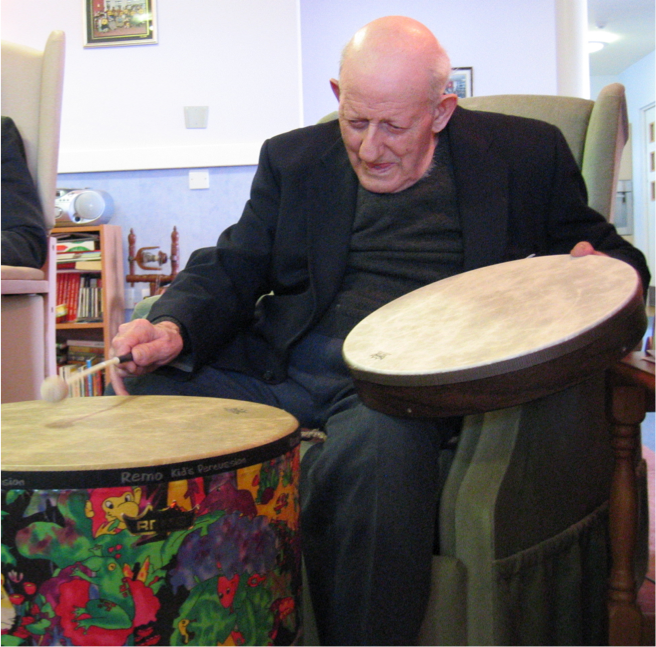
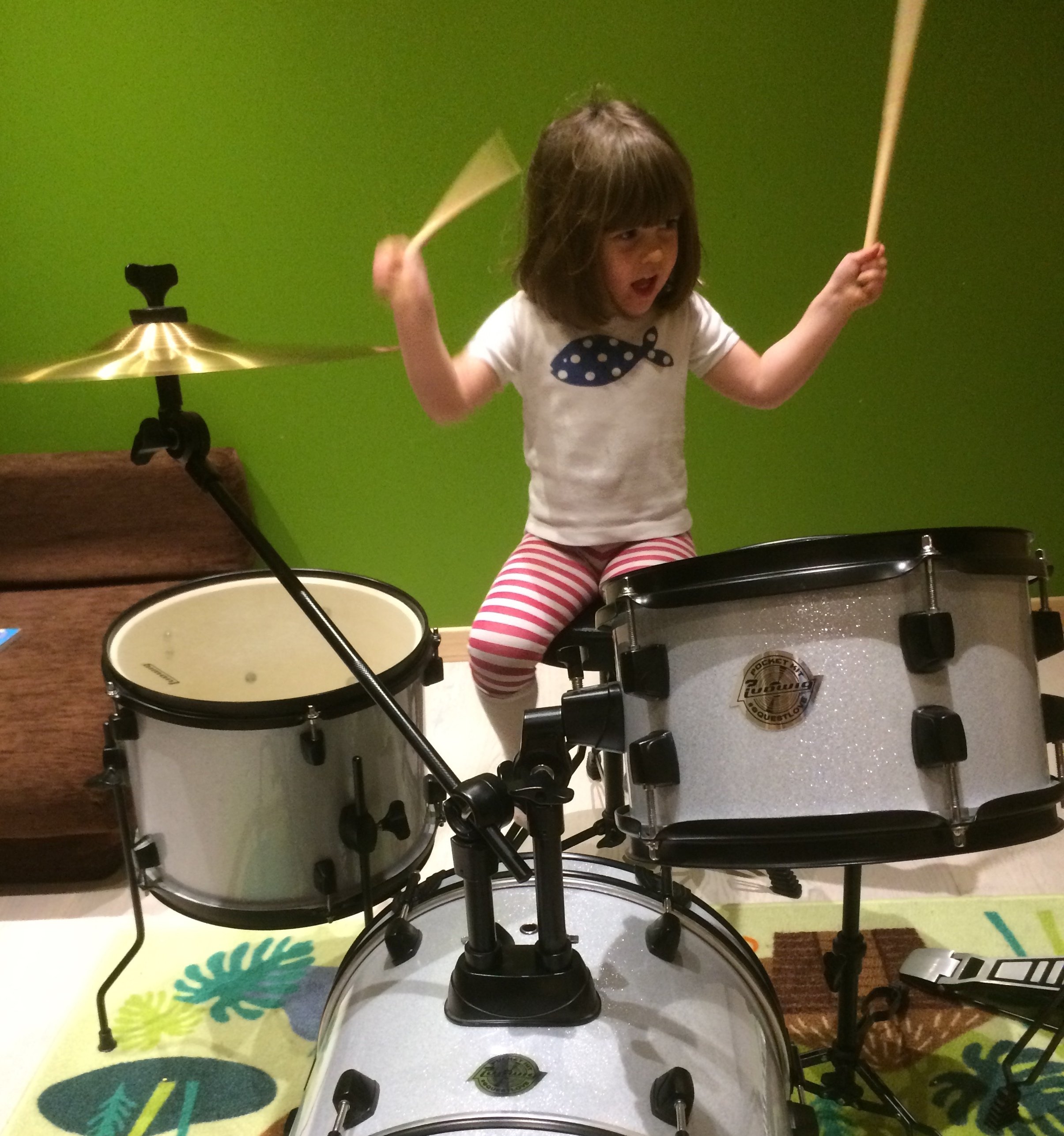
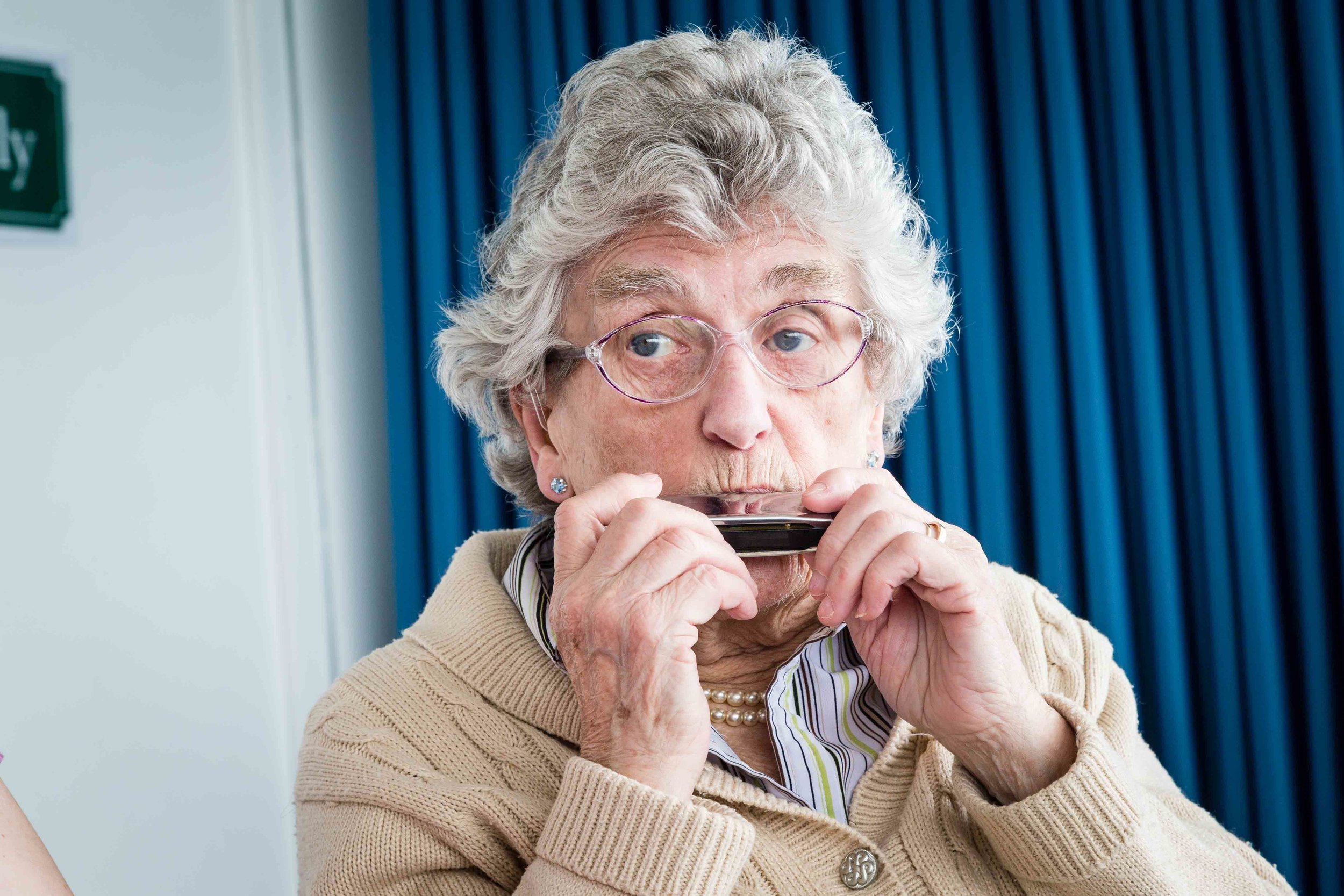
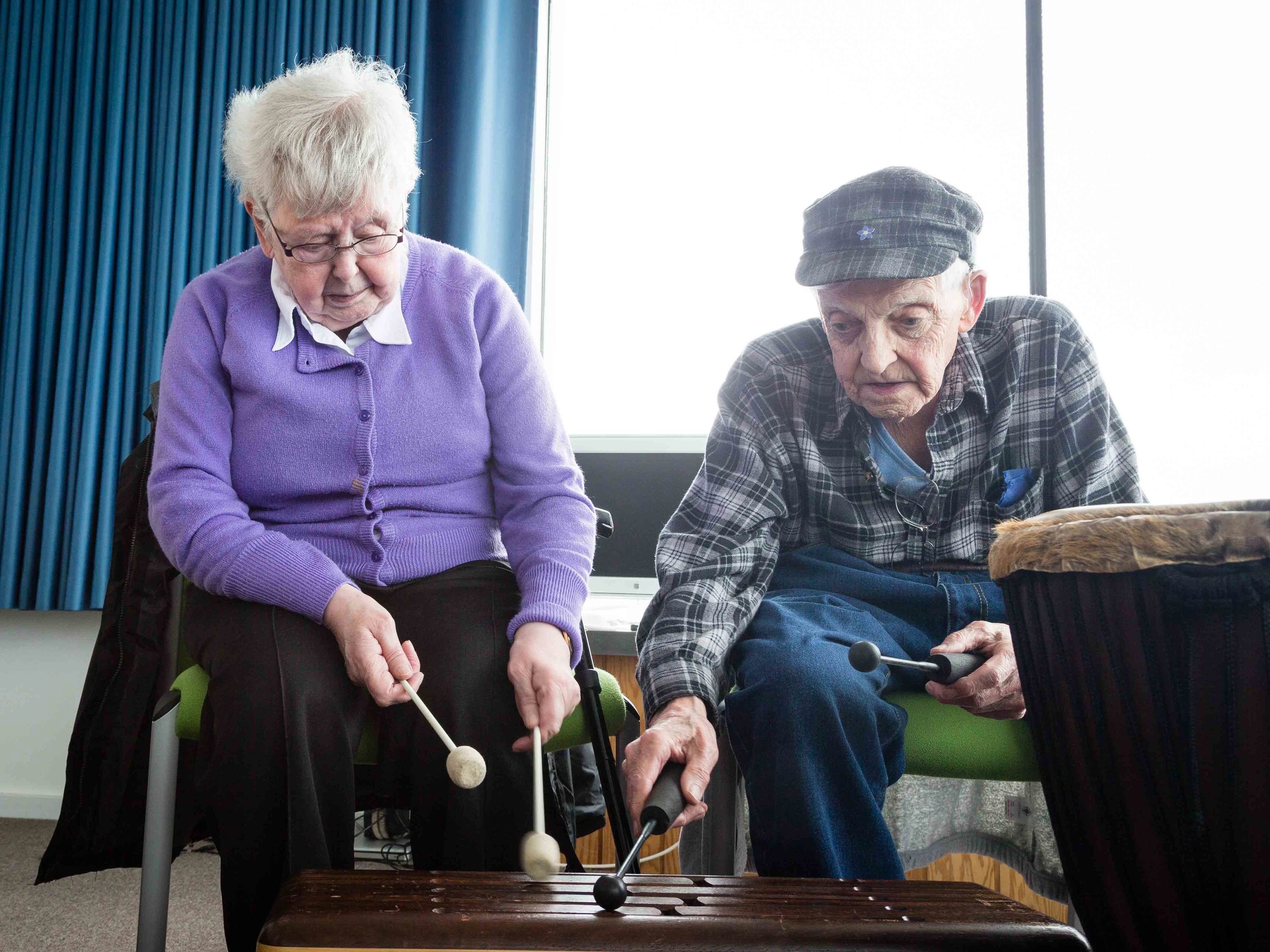
In music we are alive
What happens?
Music Therapy is led by the client so it can look very different depending on the needs of each person.
Music Therapists usually encourage clients - and where appropriate, their families or carers - to engage in a therapeutic relationship through musical interaction.
Sessions usually take place weekly in a private room with a piano, a guitar and a range of percussion instruments.
Clients are encouraged to explore a world of sounds and to create a musical language of their own. By responding musically, the therapist is able to support and encourage this process.
Music provides a way of communicating which, for some people, can be more immediate and accessible than words.
The secure relationship between therapist and client offers an opportunity to develop trust and understand how the client relates to other people.
Music Therapists can find ways to support the client's emotional health and social wellbeing, offering another perspective on their needs and abilities.

Finding your creative voice
What are the benefits?
Music Therapy interventions can:
improve communication
improve concentration
develop social skills
explore personal themes and patterns of relating
raise self-esteem and confidence
promote wellbeing
manage stress
improve sensitivity to others and listening skills
enhance quality of life
facilitate movement and physical rehabilitation
increase motivation
provide an outlet for strong and difficult feelings
develop self-control
give opportunity for creative and emotional expression
promote social integration and inclusion
provide unique opportunities for interaction
✺ FAQs ✺
-
To make a music therapy referral for yourself or someone else please email:
musictherapyshetland@proton.me -
Individual therapy sessions range from £45 - £65 depending on the length of session and what type of service you are accessing.
Many of our music therapy clients access direct payments to support their sessions: adults
Community Connections can also offer support and advice about direct payments.
We believe therapeutic services should be accessible to everyone and are working hard to develop our funding streams so we can offer a more subsidised service.
Please get in touch if your financial situation is a barrier to accessing the service you need. We will not judge you and there may be ways we can help. -
This is an important question and one which we aim to speak through with all clients.
Everyone is different and will have a unique relationship to the Hymhus community and specific needs.
Some people are happy for people to know they (or a family member) are attending music therapy and can also schedule their visit to integrate with group activities.
For others, privacy is important and they might prefer to visit more discreetly at a quiet time.
We will do everything we can to help you feel comfortable and relaxed about coming and protect your privacy. We know people in Shetland like to know what people are up to (!) so we can also discuss the story you might want to share if someone asks why you are in Bigton.
There are many reasons why people come to Hymhus if coming for 'therapy' or 'support' feels like it has stigma attached.
It is normal to be sensitive about these things and we are always happy to speak through details, such as where to park, if any of the other Hymhus staff will be around or which door you would like to use etc.
-
This depends on the age and needs of each person but generally speaking a music therapy session will last between 30 - 50 minutes.
-
Again, this is can vary considerably from person to person.
For some clients music therapy provides an important and regular outlet for their emotional wellbeing and can be an ongoing commitment for many years.
For some clients a block of 16 sessions can lead to group opportunities or they might come back in future to revisit themes they have explored in the therapeutic relationship.
There is no magic formula but we will do our best to find what is most suitable for each individual.

